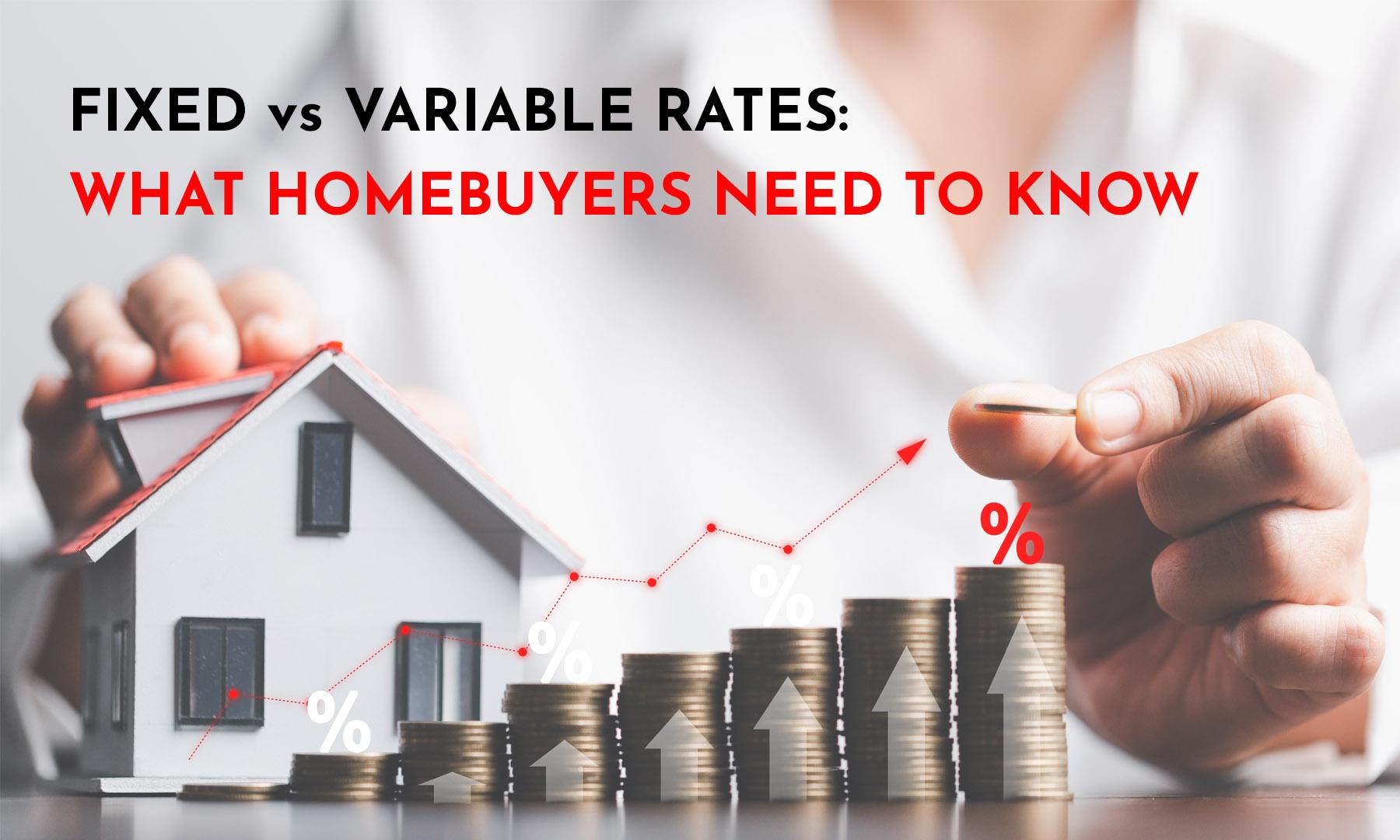FIXED VS VARIABLE INTEREST RATE DUBAI MORTGAGE

Stepping into the world of homeownership is an exciting journey, filled with important decisions that shape your financial future. One of the most critical choices first-time homebuyers face is selecting between fixed and variable interest rates for their mortgage.
This decision not only affects your monthly payments but also the total amount you’ll pay over the life of your loan. Understanding the differences between these two types of interest rates, their benefits, and potential drawbacks is essential.
Let’s understand the pros and cons of fixed and variable interest rates to help you make an informed decision.
Fixed Interest Rates
A fixed interest rate is a rate that remains constant for a period of a loan term. This means that the borrower’s monthly payments will remain the same, regardless of changes in the market interest rates.
Pros:
- Predictability: Fixed interest rates provide borrowers with predictability and stability. They know exactly how much they will be paying each month, which makes it easier to budget and plan their finances.
- Protection against rising interest rates: Fixed interest rates protect borrowers from the risk of rising interest rates. If interest rates increase, the borrower’s monthly payments will not be affected.
- Easier to compare: Fixed interest rates are easier to compare because they do not change over time. Borrowers can compare the interest rates of different lenders at the time of taking out the loan and choose the one that offers the best deal.
Cons:
- Higher interest rates: Fixed interest rates are usually higher than variable interest rates. This is because lenders charge a premium for the stability and predictability that fixed interest rates offer.
- Limited flexibility: Fixed interest rates offer limited flexibility. Borrowers are locked into a fixed interest rate for the term of the loan, which means they cannot take advantage of lower interest rates if they become available.
- Penalties for early repayment: Fixed interest rates often come with penalties for early repayment. This means that if a borrower wants to pay off their loan early, they may have to pay a fee.

Variable Interest Rates
A variable interest rate is a rate that can change over the term of a loan. Variable interest rates have 2 components, a base rate set by the lender + the EIBOR [Emirates interbank offering rate] set by the CentralBank of the UAE. This means that the borrower’s monthly payments may increase or decrease, depending on changes in the market interest rates.
Pros:
- Lower interest rates: Variable interest rates are usually lower than fixed interest rates. This means that borrowers can save money on interest charges if market interest rates remain low.
- Flexibility: Variable interest rates offer borrowers flexibility. They can take advantage of lower interest rates if they become available, and they can also pay off their loan early without incurring penalties.
- Protection against falling interest rates: Variable interest rates protect borrowers from the risk of falling interest rates. If interest rates decrease, the borrower’s monthly payments will also decrease.
Cons:
- Unpredictability: Variable interest rates are unpredictable. Borrowers cannot be sure how much they will be paying each month, which can make it difficult to budget and plan their finances.
- Risk of rising interest rates: Variable interest rates expose borrowers to the risk of rising interest rates. If interest rates increase, the borrower’s monthly payments will also increase.
- Difficult to compare: Variable interest rates are difficult to compare because they can change over time. Borrowers may not be able to compare the interest rates of different lenders accurately.
Bottom Line
Fixed interest rates offer predictability and stability, while variable interest rates offer flexibility and the potential to save money on interest charges. Ultimately, the choice between fixed and variable interest rates depends on the borrower’s financial situation, risk tolerance, and preferences.
And if you’re looking to navigate Dubai’s mortgage landscape with the best interest rates, and financing options, then My Mortgage stands out as an invaluable resource.
With a comprehensive understanding of Dubai’s real estate market, My Mortgage offers tailored advice and solutions that can help streamline the mortgage process, making it easier for borrowers to secure a deal that aligns with their interests.